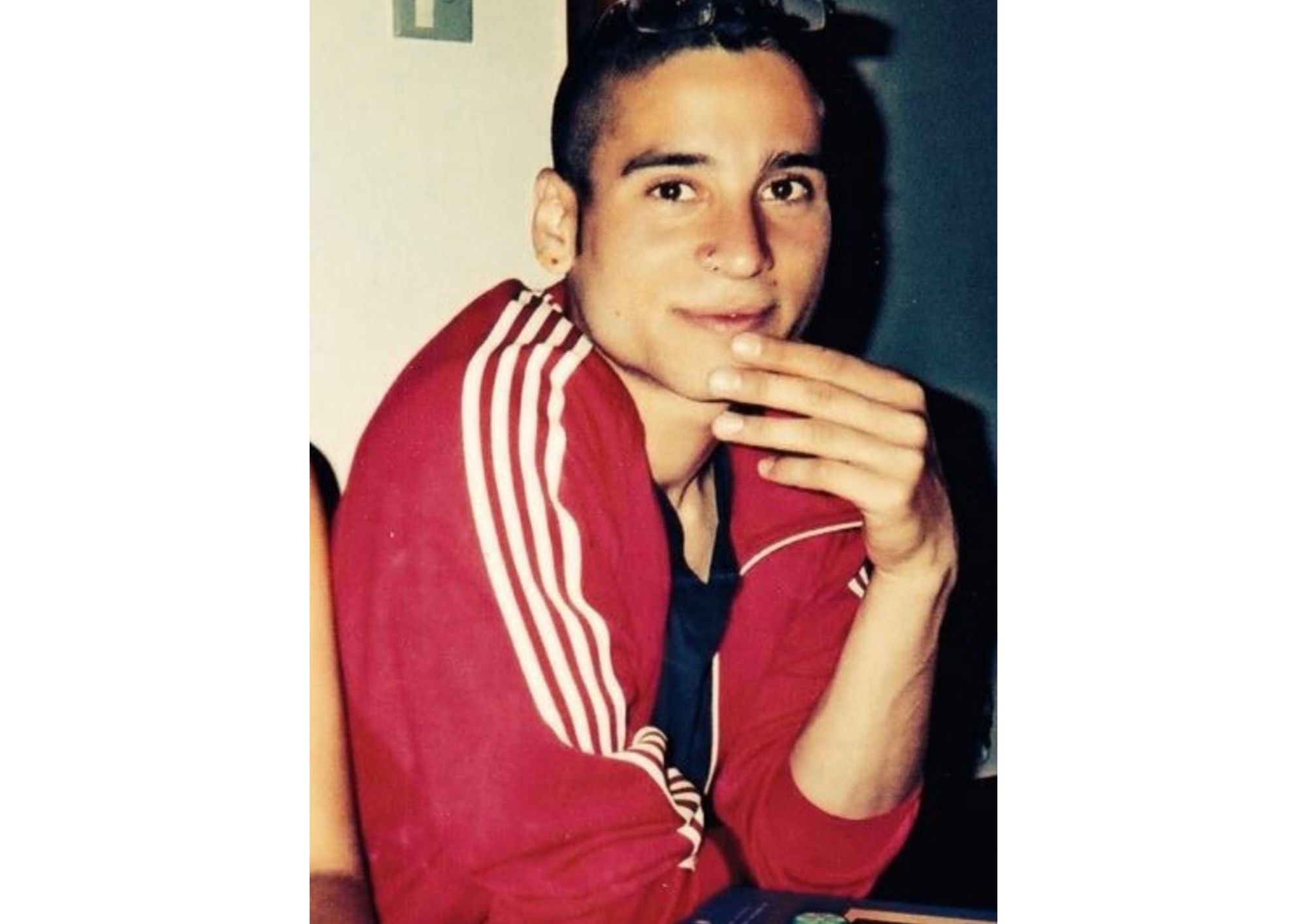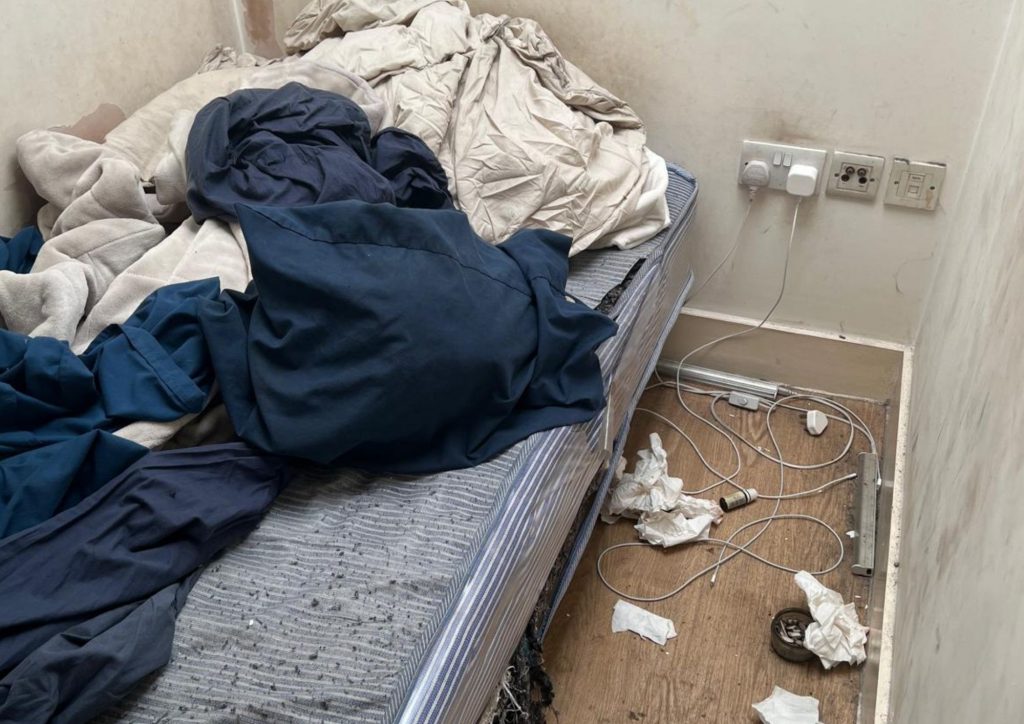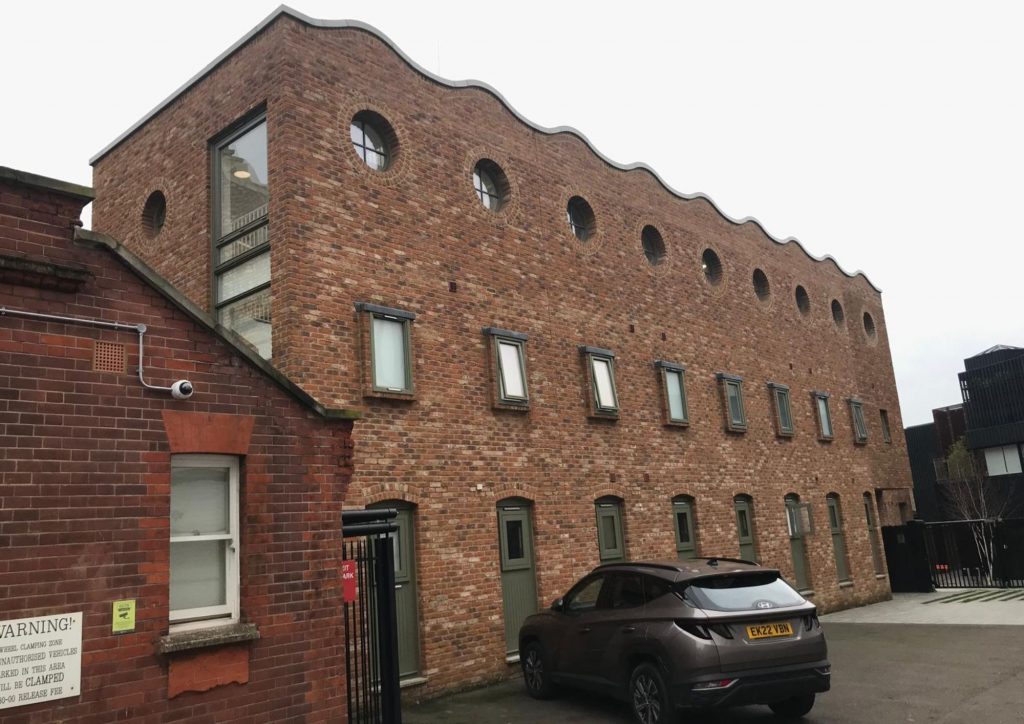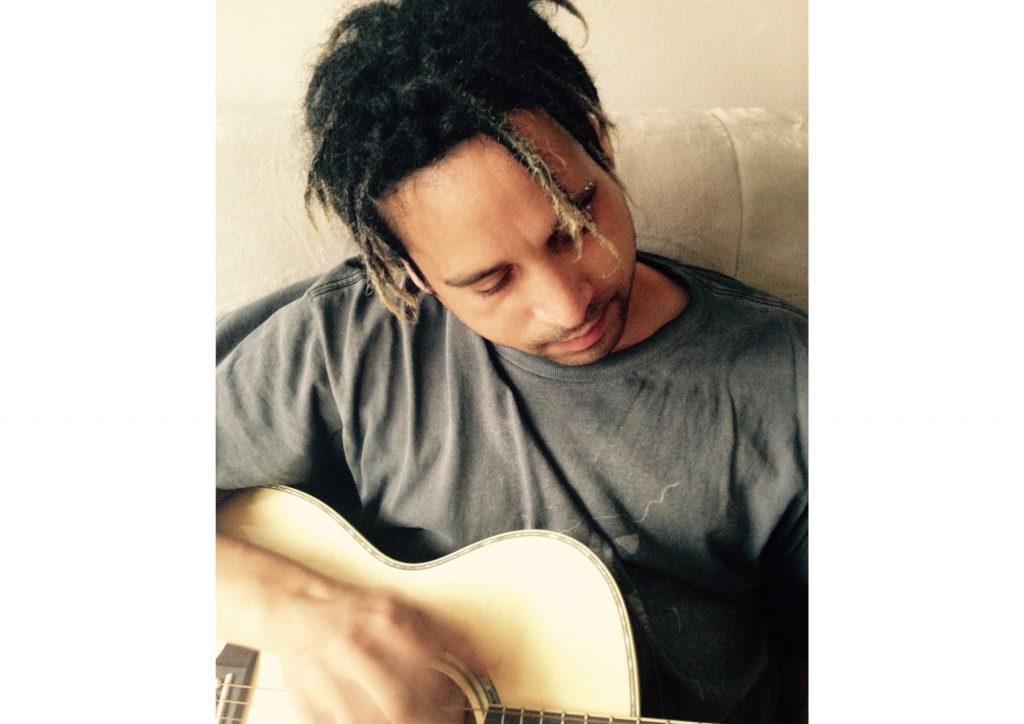Hostel death failures: ‘It should have been clear Joe need help before death in squalid room’
SPECIAL REPORT: NHS apologises after death of musician with no care plan
Thursday, 9th January 2025 — By Tom Foot

Joe Black died at the Holmes Road hostel in Kentish Town
A MUSICIAN who died after taking super-strength contaminated heroin was allowed to slip through the net and die in squalor, his family said as they called for a full review of hostel services in Camden.
The death of Joe Black – who had recently studied for a masters degree and was living with paranoid schizophrenia – has exposed a black hole in support available to some of the borough’s most vulnerable people.
The 39-year-old was found dead at the Holmes Road hostel, Kentish Town, in August 2023, leading to warnings that people with addiction problems and mental health diagnoses are being failed.
He had been moved into the hostel from a Kilburn bedsit which was “cuckooed” by dangerous criminals who took over his home, cleaned out his bank account and threatened him with a gun.
His relatives said he was not assessed over two years, never provided with any sort of care coordinator and placed in unsuitable accommodation.
His mother Jude said: “We had naively believed and trusted that hostel staff were advising and supporting Joe to acquire the skills to live independently in a healthy and safe environment.
“In reality he was just left to deteriorate further and allowed to live and die in squalor.”
The New Journal today publishes a picture of his room on the day he died as an illustration of how he had been left to live.

The state of his room on the day Joe died – it has now been suggested that the warning signs that he was not coping should have been office

The recently built hostel in Holmes Road, Kentish Town
A coroner ruled this week he had died from an ultra-potent synthetic heroin – known as a “nitazene” – which he was most likely unaware was a serious danger to him.
But Mr Black’s family say he was repeatedly let down by both the council and NHS – the latter has apologised by how his case was handled (see below) and promised changes following its own internal investigation which found “communications gaps”, “missed opportunities” and breakdown of “collaborative support”.
Ms Black said: “How could they house a vulnerable deeply unwell person who had been the victim of criminal exploitation by heroin and crack dealers in a hostel where he was surrounded by heroin and crack users, and dealers. How on earth could he recover in that environment?”

Joe Black was a talented musician
She added: “I believe that Joe increasingly gave up hope and lost his motivation to take care of himself after moving into Holmes Road Hostel.
“It is clear his drug use escalated and intensified. He became more and more susceptible to dangerous drug use. Things need to change to stop this happening again.”
The reality of life in the hostel is unsurprisingly not mentioned in the boasts about the new building.
It won a prestigious RIBA award after opening in 2020 through Camden’s long-running Community Investment Programme, which funded new housing in Camden through the sales of publicly owned land and buildings, and deals with property developers.
The council says the service there provides the “best possible pathway to independent living” and a place where “our most vulnerable residents can access support and training to learn skills and build confidence.”
As a teenager, Mr Black had won a prestigious college place on a music scholarship.
He went on to become a distinguished bass player whose music was printed on vinyl and praised in industry magazine reviews.
As a younger man he had a clever way with words and a witty sense of humour.
“He was a wonderful, creative, caring and sensitive person – loyal, full of empathy for people who struggled in their lives,” said his mother.

Joe Black
But Joe struggled to live independently after being diagnosed with paranoid schizophrenia, and began self-medicating due to “his unmanageable symptoms”, before going missing on the streets for a year and a half.
“I would look at people sleeping in doorways and on the streets and wonder if they might be my son,” said Jude.
After he was finally found, he “continued to struggle with frightening delusions, hallucinations and paranoid thoughts that tormented him through his last months”, his mother added.
After being sectioned he moved into the bedsit in Kilburn High Road and was later placed under the care of Camden’s North Camden Rehabilitation and Recovery Team.
But he found himself “cuckooed” by a gang of drug dealers who “put a gun to his head to empty his bank account,” said Jude.
At St Pancras Coroner’s Court, the inquest was told that despite this ordeal he was not assigned a care coordinator – a basic offer to anyone with a severe condition like schizophrenia – and had no mental health assessment for over two years.
Ms Black is a teacher of vulnerable children with behavioural problems, a former head of department at Camden secondary school and currently employed by Islington Council, and also a carer rep to the Royal College of Psychiatrists.
Despite her experience, she told how she felt powerless to help her son after hostel staff failed to respond to her pleas for help about his worsening drug use and delusions.
Joe’s closest friend in the Holmes Road hostel, told the New Journal: “He was too manic for that place. He needed more support. There are so many people in there who have severe addiction and mental health problems. The staff are not qualified to deal with these people.”
An experienced hostel manager, who had been involved in Mr Black’s case, said: “The state of his room – that should have been an indicator that things were not going well.
“The questions that people should be asking is what the staff in the hostel were doing, and why weren’t the services working together?”
Blaming 1980s Thatcherism for slashing public sector wages, he said: “We all know pay in the public sector has been cut. But when you look at the hostels and what they are offering for mental health workers, it’s around £24,000 a year.
“Hostel work carries with it such low self-esteem, when it is actually very highly skilled if you do it well.”
In August 2023, the New Journal ran a front-page story about the dangers of synthetic opioids in heroin overdoses following an alert from the police and NHS.
In his ruling, handed down this week, St Pancras assistant coroner Ian Potter ruled: “I find that the presence of nitazenes in Joe’s blood most likely derived from adulterated heroin and, as such, he was most likely unaware of this.”
A council spokesperson said: “We would like to offer our deepest sympathies to Joe’s family and friends for their profound loss and ongoing grief.
“The wellbeing of our hostel residents is a priority, which is why we offer a wide range of support to them, working closely with our colleagues in social care and mental health to support our residents.
“We will ensure that we review the inquest’s findings and identify any learning and improvements we can make to our services.”
Nhs apology for case slipping through the net
THE NHS has apologised to the Black family after its internal probe found he had slipped through the net.
The North Camden Rehabilitation Team, run by what was formerly the North London NHS Foundation Trust, said its investigation could find “no evidence” that its systems for monitoring vulnerable patients were applied in his case.
Specifically, no care coordinator was designated to Joe after April 2021.
After he missed two appointments with specialists at his “depot clinic” – where patients go for antipsychotic injections – there was “no attempt” to rebook him in, despite clear guidelines.
There were “communications gaps” and “missed opportunities” and breakdown of “collaborative support”.
The review said actions included setting up a more robust system to prevent this happening again and better training of health professionals.
“We are committed to learning from this tragedy and improving our services to prevent similar incidents happening in the future.”
A review by the council led to a review of policies, including health and safety checks are properly recorded.
It “did not flag issues or areas for improvement that would have signalled other residents at risk of harm”.
Killer drugs advertised with lamppost stickers
NITAZENES are a “synthetic opioid” that can be hundreds of times more potent than traditional heroin, writes Tom Foot.
They have become dominant in the North American drugs market for more than a decade, but have only began showing up in this country in the past few years.
One of Joe’s closest friends, battling to stay clean after falling into a life of hostels, said many addicts are aware of the dangers but still seek them out nevertheless.
He told the New Journal: “The insanity of addiction is that when addicts know the nitazenes are about, they will want to go and find it and buy it for themselves.
“I’ve noticed that here people smoke it on the pipe. But if you do it through tin foil you can see what’s going. If it burns red it’s ok, when it runs clear it’s the fake opioid.
“You look at America and they have had this problem for 10 years. It is what is happening over here now, we are going through that transition.”
He described the scene of a “group drop” of drugs in Queen’s Crescent last year as “no word of a joke, when the dealer comes it was like a pack of animals, fighting with each other throwing the money. Madness”.
He said that dealers might initially give out some free samples to homeless people in return for phone numbers that get “passed around”.
“When I was in Kentish Town I knew about 20 people who would message me in the morning – ‘three for £25’.
“You get a menu delivered on WhatsApp with all different strains of weed. All the drugs, prices and pictures – videos of them being packaged. Then there are marijuana signs on lampposts, with QR codes leading to an address and a number.”
Dealers are brazenly targeting the homeless by leaving contact details on street lampposts with QR code stickers.
Where to get help if you have been affected by the issues raised in this article
The first port of call for people in the grip of hard drug addiction is Camden’s drug and alcohol service, now run by Change Grow Live.
It is based in King’s Terrace Camden Town but it is best to call first on 020 7485 2722.
Narcotics Anonymous also holds free and informal group meetings all over the borough every day of the week. Details are available on the organisation’s website.
Rabbi is shocked by inquest conduct
A RABBI criticised Camden’s “unnecessarily accusatory” approach at Joe Black’s inquest, writes Tom Foot.
Shulamit Ambalu, who attended the coroner’s court last month, said she had been shocked by the council barrister’s “intimidating style”.
The New Journal saw how the hearing became overwhelmed by legal disputes that appeared focused on preventing a future financial civil claim against the Town Hall by the family.
Inquests are supposed to be solely about establishing cause of death and the Black family’s legal team had also complained about the “adversarial nature” of the council’s counsel questioning during the hearing.
In a letter to the family, consented for publication, Rabbi Ambalu said: “I was very surprised and concerned about how adversarial the barrister for the Local Authority was during the inquest. Unfortunately, this was directed at you or at your family in general.
“I remember that the barrister said that for your family this was a ‘dry run’ for a later case. That was quite shocking, as he was suggesting that your motives were something other than finding out the truth of Joe’s death. Or that there was some sort of future gain in mind for your family.”
Unusually, the family won legal aid to be represented by barrister and solicitors at the inquest.
In a submission to the coroner, they had called for an “Article 2” ruling saying there had been “systemic failure to effectively address the use of drugs at Holmes Road Hostel” saying that the council was culpable for an “ongoing risk to life”.
But this was dismissed by the coroner in his judgment this week.
Mr Black’s father Andy said: “To be honest, a civil claim is the least of our considerations.”
The council said: “We understand that inquests, in their formal setting, can be a very difficult experience for families.
“As an interested party to the inquest we must assist the coroner in their role in establishing the facts. This can involve making legal submissions on matters where there is a difference of opinion.
“While this process cannot lessen the pain felt by all who knew Joe, we hope that the findings might contribute to such a tragic incident being less likely in the future.”